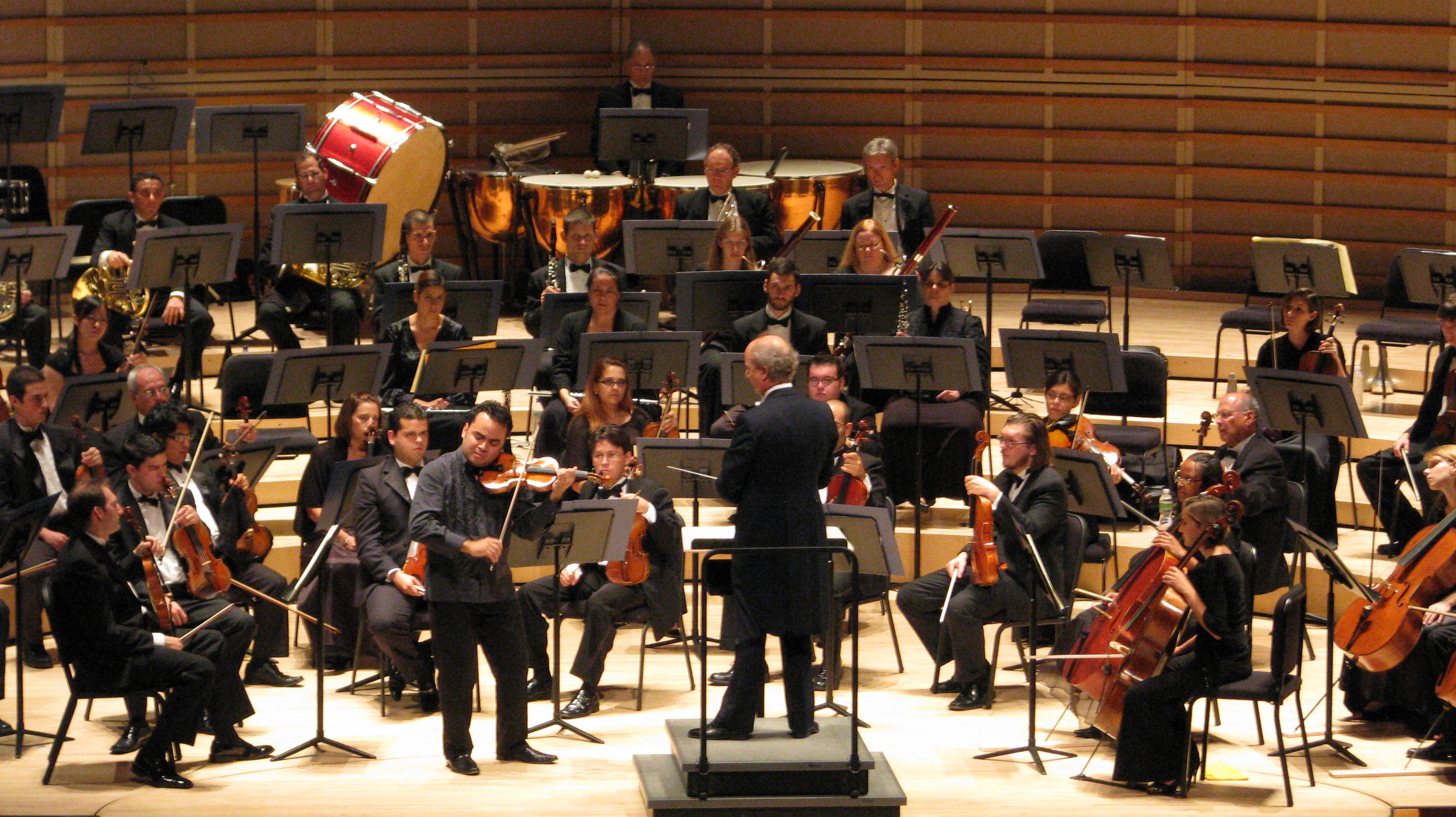Miami Symphony turns 20 with brassy verve
It’s striking that the New World Symphony and Miami Symphony Orchestra have each been fixtures on the circumscribed local music scene for twenty years while existing in completely parallel universes. The New World Symphony remains the Big Bertha of area orchestras, with the Miami Beach training ensemble’s quality, renown and endowment unlikely to be matched anytime soon. The Miami Symphony has been content to coast along with a less visible profile, largely the provenance of its heavily Latin audience and supporters.
That said, under music director Eduardo Marturet, the MSO has made impressive strides in recent seasons, substantially upgrading the performance quality, even if programs continue to rely heavily on showpieces, crossover, and Spanish-flavored bonbons.
Marturet opened the Miami Symphony’s 20th season Saturday night at the Arsht Center’s Knight Concert Hall with a representative program, featuring one cornerstone of the German repertoire alongside three shorter, lighter works.
For all its popularity, Brahms’ Violin Concerto is infrequently heard in South Florida, with touring fiddlers content to hew to the Tchaikovsky-Mendelssohn reportorial line.
Alexis Cardenas, like Marturet, is a Venezuela native, and clearly a gifted musician with an easy virtuosity and romantic sensibility suited to Brahms’ concerto. At times in the long first movement, his performance felt rather small in scale, well played, but literal with a narrow range of color and expression. The climatic cadenza, especially, felt too laid-back and lacking in dramatic bite.
The Venezuelan soloist came into his own in the Adagio, where his intimate style and sweet, slender tone proved more in synch with the music’s introspective reverie. Cardenas and his compatriot Marturet were at their finest in the closing movement, where Brahms’ insistent Hungarian-flavored main theme acquired a Latin fire and edge, leading to an exhilarating coda, with the orchestra lending equally committed support.
For his encore Cardenas, who performs with a jazz trio, displayed his populist leanings, working Brahms’ themes into a solo showpiece that morphed into a lively mix of jazz and Latin syncopation.
The Miami Symphony remains a work in progress, lacking ballast in its corporate sonority, with variable horn personnel and wind tuning a sometime thing. Still Saturday night, the MSO played very well indeed, tackling a long evening with power, unbridled enthusiasm, and superb trumpet playing.
Marturet is at his best in the kind of splashy, colorful showpieces that made up the balance of the program. The evening led off with a fizzing account of Shostakovich’s Festive Overture and closed with an exciting performance of Rimsky-Korsakov’s Capriccio espganol. In RImsky’s Iberian musical postcard, the MSO members made the most of their opportunities, with concertmaster Daniel Andai lending a neat peasant touch to the gypsy-flavored violin solos.
It’s been a good week for Ravel fans with L’Enfant et les Sortileges, Rapsodie espagnole, the Left Hand Piano Concerto, and Saturday night, the Valses Nobles et Sentimentales all heard on local stages. Ravel orchestrated the piano Valses original for a ballet, and the dance influence was clearly manifest in Marturet’s Terpsichorean podium moves, as well as the wonderfully graceful and lilting performance.
[Photo: Robert Andai]
Posted in Performances
Leave a Comment
Sun Oct 19, 2008
at 3:24 pm
No Comments
